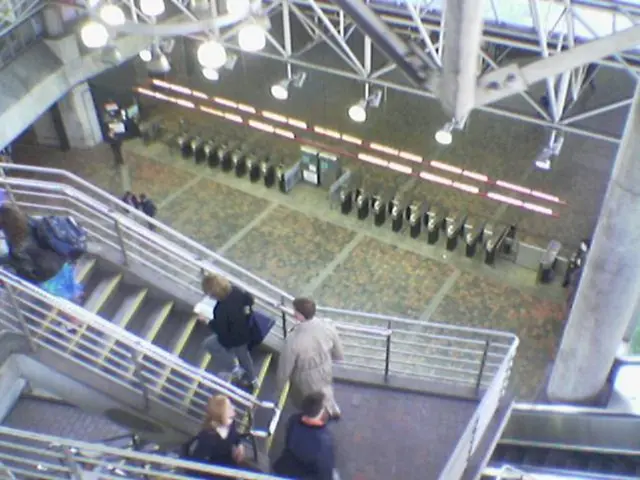Tracking migrant children: Strategies of the Trump administration involving door-to-door verifications and DNA testing for approximately 450,000 minor immigrants.
Trump's administration is on a nationwide crusade, reviewing approximately half a million migrant children who entered the U.S. without parents during their second term. The kids, who crossed the border during surges, were previously placed in homes with adult sponsors, often family members.
Migrant advocates are skeptical about the Republican administration's tactics, including sending Homeland Security and FBI agents to check on the children. Concerns have risen that this review could be used to deport sponsors or children without legal status in the country.
Trump officials argue that adult sponsors were not always properly vetted, leaving some children at risk for exploitation. In fact, the Department of Justice has indicted a man for allegedly enticing a Guatemalan girl to travel to the U.S., impersonating her brother to gain custody as her sponsor[4].
As the administration checks on cases where complaints have been filed, they expect to uncover more problematic sponsors[3]. So far, about 450 cases have been referred to federal law enforcement officials this year[3].
Health Secretary Robert F. Kennedy Jr. mentioned the review during a Cabinet meeting, ensuring everyone that they're trying "to find the children"[2]. For over a decade, the federal government has allowed adults to sponsor migrant children, but the program faced issues during the Democratic years, with officials failing to conduct proper background checks in some cases before children were placed with sponsors[1].
Thousands of children were placed with legitimate families during the program, but some are now worried they'll be swept up in the review, potentially leading to deportation. Mary Miller Flowers, the policy director of the Young Center for Immigrant Children's Rights, emphasizes that "protecting children isn't optional"[2], but doubts persist about the impact of armed law enforcement officers on the children's willingness to open up about abuse or concerns regarding their sponsors.
In some cases, children were reportedly removed from their sponsors and placed back into federal custody, often in private shelters[2]. Controversies surrounding the initiative have been reported across the country, with instances of families being deported and children being visited by armed agents[5].
Under the current Trump administration, sponsors now need to submit fingerprinting, DNA testing, and income verification as part of the screening process[1]. This may create obstacles for potential sponsors who might not have an income or may be undocumented[1], potentially trapping children in federal detention[1].
- The Trump administration is typically scrutinizing tech solutions for conducting background checks on adult sponsors, adding a layer of AI-driven technology to the review process.
- Despite concerns of migrant advocates and rising doubts about the impact on toddlers, the general-news media continues to report on issue-related concerns such as deportation and crime-and-justice.
- In response to claims about inherent risks and potential exploitation, tech companies have added additional layers of security to their systems, ensuring the safety and well-being of the children.
- Lawmakers in the political arena are discussing potential reforms to ensure the health and legal status of the children, addressing concerns raised by travel-related dangers in the immigration process.
- With the added complexity of the tech-driven vetting process, some sponsors may face fears of unfair deportation due to technicalities or misunderstandings within the law.
- As AI systems become more prevalent in sensitive areas like deportation proceedings, critics are urging for increased transparency to ensure fairness and avoid misrepresentations in the technology's decisions.
- In a show of solidarity, tech giants have pledged to work with health officials to help support the social, emotional, and psychological needs of the migrant children as they navigate the challenging journey ahead.








